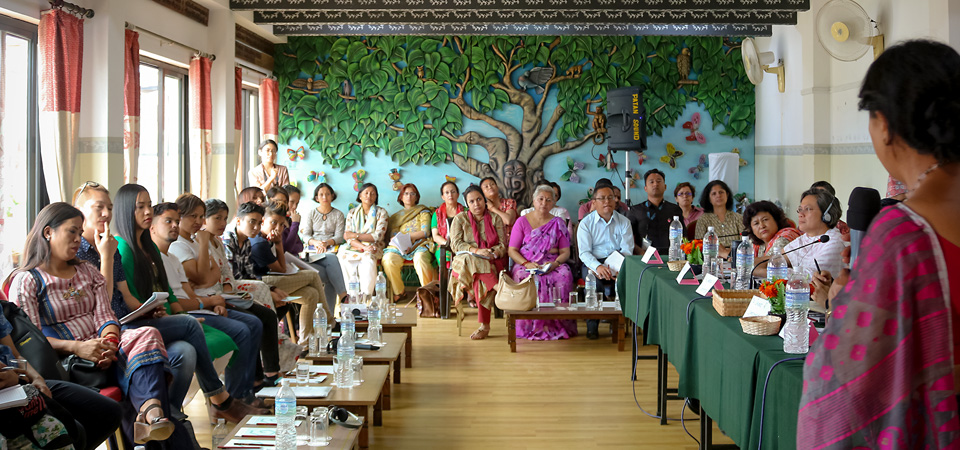Nepal takes steps to include LGBTIQ persons in 2021 population census
Date:
Author: Anam Abbas, Sharu Joshi and Rita Thapa

Kathmandu, Nepal — UN Women is supporting dialogue between the Government and LGBTIQ groups to ensure that Nepal’s LGBTIQ persons are properly counted in the 2021 population census.
The last census, in 2011, tallied only 1,500 persons identifying as LGBTIQ (lesbian, gay, bisexual, intersex and queer/questioning). That was because the census lacked specific questions or a method to collect this data, and the nature of the census made many persons afraid to come out.
LGBTIQ rights groups said there were actually 2.5 million LGBTIQ persons in the country and asked that the 1,500 number be erased. That rendered the LGBTIQ population invisible in official national statistics. And so, the Constitution enacted in 2015 did not include LGBTIQ persons among the country’s recognized minority groups.
To ensure this problem is fixed in the 2021 census, UN Women and United Nations Population Fund (UNFPA) organized a dialogue in Kathmandu on 13 August between the Central Bureau of Statistics and LGBTIQ groups. Representatives from the LGBTIQ groups Mitini, Inclusive Forum Nepal and Blue Diamond Society participated, along with the Ministry of Women, Children and Senior Citizens, UNFPA and UN Women.
Speaking for the three LGBTIQ groups, Manisha Dhakal, Executive Director of Blue Diamond Society, highlighted Articles 12, 18 and 42 of the Constitution concerning sexual and gender minorities, to point to the Government’s duty to protect the rights of LGBTIQ persons. She also quoted landmark judgements by the Supreme Court that in 2017 led to the granting of a spousal visa to a foreign citizen who had married a same-sex partner in Nepal. Dhakal highlighted the underrepresentation in the 2011 census and requested proper inclusion in the 2021 census.
Dhundi Raj Lamichanne, Director of the Population Division of the Central Bureau of Statistics, said the 2001 census focused on gender mainstreaming and the 2011 census on gender equality and social inclusion, while the 2021 census will focus on gathering baseline data for the new federal government structure provided for in the 2015 Constitution. He said the bureau welcomed further discussions to address the concerns of LGBTIQ groups.
Chandra K. Ghimire, Secretary at the Ministry of Women, Children and Senior Citizens, said the Ministry also welcomes further dialogue with LGBTIQ persons, so that more inclusive policies can be made. The Ministry is working on the gender equality and social inclusion policy of the 15th National Plan, for 2020 to 2024, he said.
Wenny Kusuma, Country Representative of UN Women, said the presence of the statistics bureau and the Ministry at the dialogue showed the Government was committed to inclusion of LGBTIQ persons.
She reminded the LGBTIQ groups to come up with a common definition for themselves, in order to facilitate the counting.
Lubna Baqi, Country Representative of UNFPA, said: “This is an important issue; therefore, identifying the correct methods of application to count LGBTIQ individuals needs further discussions.”